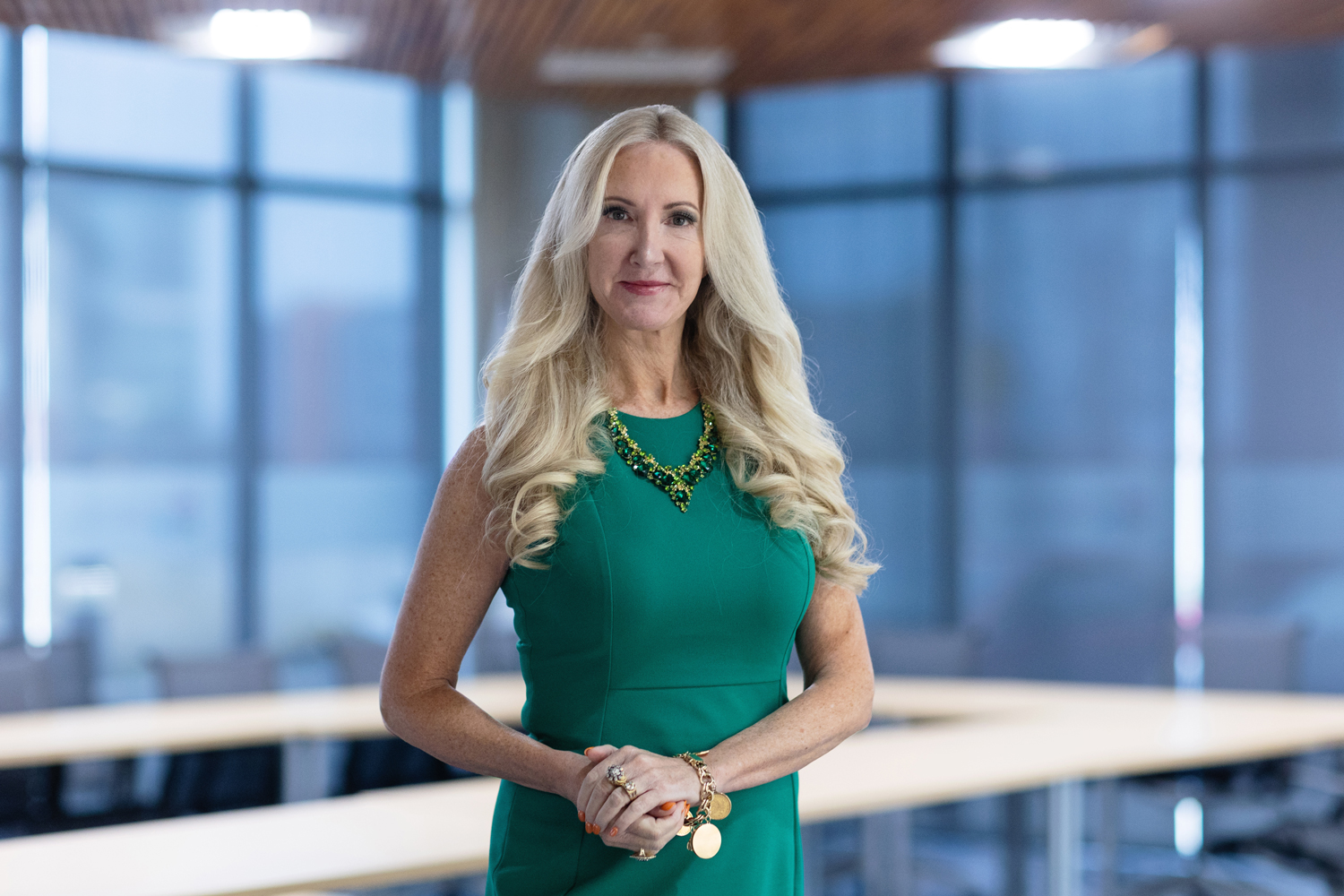Guest commentary: The likability challenge: a barrier for women in leadership

BY KATHERINE HARRINGTON
The notion of “likability” is a double-edged sword that countless women face in their professional lives. As a woman who has navigated various leadership roles, I can attest that the likability challenge is both frustrating and deeply ingrained in our culture. It’s a subtle but persistent barrier that shapes how women are perceived in the workplace and affects not just their day-to-day interactions but also their long-term career prospects.
I’ve often encountered situations where I was asked to tone down my assertiveness, simply to ensure I came across as more “likable.” In one instance, when I was working at US Magazine, I was asked to show up “not so early” as it “made everyone else look bad.” In another instance, at the San Diego Business Journal, I was told to “stay in my lane” and quit “being so innovative.” It is a tightrope walk that many women must balance: Be too assertive, and you’re labeled as “bossy” or “difficult;” show too much empathy, and you’re seen as “soft” or “not tough enough for leadership.”
Studies show that women who exhibit traditional leadership traits — decisiveness, assertiveness — are often penalized for it. A 2016 study by Lean In and McKinsey & Co. found that women are 24% less likely than men to get advice from senior leaders, which is key for career advancement. Why? One reason could be the undercurrent of likability. Women are often perceived as less approachable, or their ambition is misconstrued as overbearing.
This likability challenge is not unique to me. Consider Oprah Winfrey, one of the most influential women in media. Oprah’s rise to the top was marked by her ability to balance warmth and approachability with her ambition. Her likability became a cornerstone of her brand, yet even as she built a media empire, critics sometimes dismissed her business acumen in favor of focusing on her persona. Oprah had to navigate a landscape where likability was both an asset and a constraint, proving that women — especially Black women — could lead with empathy and strength in equal measure.
Similarly, Sheryl Sandberg, COO of Facebook and author of “Lean In,” has faced her own version of the likability challenge. Sandberg’s push for women to assert themselves in the workplace sparked a national conversation, but she was often criticized for being too ambitious or not “relatable” enough. Her book encouraged women to lean into leadership roles, but she also faced backlash from those who felt she was too corporate or out of touch. Once again, a woman’s professional achievements were scrutinized through the lens of her personal likability rather than her competence.
As I reflect on my own journey, I’ve learned to be unapologetically myself. Yes, I am always positive and excited — those are just parts of who I am — but it took time to feel comfortable being that way, particularly in leadership roles. I’ve literally tried to “tone it down,” but I failed miserably. It wasn’t until I found the right role for me, one that allowed me to be fully authentic, that I realized how freeing it is to lead as myself. For women, especially in leadership, the likability challenge feels like a constant negotiation. We shouldn’t have to fit into preconceived molds to be accepted or valued. Women, in all their diversity of style, strength and leadership, should be empowered to lead authentically. What I like most is that it is freeing to just be yourself. I am creating my “own lane,” and I am thriving in it.
So, how do we change this narrative? One way is through mentorship and support systems. Surround yourself with people who encourage authenticity and provide opportunities for personal and professional growth. In my role at the West Des Moines Chamber, we’ve seen firsthand the power of programs like our Mentoring for Women Summit, where we gather women leaders to share their stories and strategies. These conversations are crucial in dismantling the expectations that women must be likable to succeed. These conversations have changed lives.
Another way is for organizations to actively challenge biases in the workplace. It’s not enough to recognize that these biases exist; companies must actively work to create environments where women are judged based on their work, not how they conform to societal expectations of how a woman leader “should” be.
The likability challenge may still be with us, but with awareness and collective effort, we can ensure that future generations of women are not held back by it. Women should feel free to lead confidently, unapologetically and authentically. And, for the record, likability is overrated.
Katherine Harrington is the president and CEO of the West Des Moines Chamber of Commerce. She has launched 30 programs, including the Athene Black & Brown Business Summit, and led efforts contributing over $250,000 to nonprofits. Harrington is a media veteran, community leader and is the president of the new West Des Moines Chamber of Commerce Foundation, which launched this year.



1 Comment
Joyce Ann Chapman · November 4, 2024 at 11:42 pm
Bravo for putting this topic front and center. Cheers, Joyce
Comments are closed.